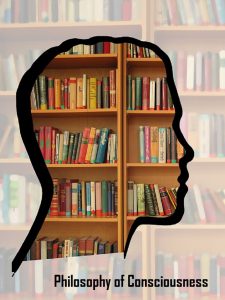“…you each have your own experiences, own incarnations. What is proof to one, as has been given, will not be proof to the other.”Edgar Cayce, «Readings» (5753—2)
What is the Cosmos?
The Cosmos (in the broadest sense) is everything that exists.
What is the Universe?
The Universe is everything that is available for human beings to know.
“The Universe is a concept that refers to everything that is within the reach of optical or radio telescopes, not what mischievous or insane mathematicians have “written in” beyond that.” (Victor-Alfred Veynik)
Modern researchers understand the Universe as everything that formed after the Big Bang and continues to form to this day.
What is “matter”?
Matter (in the broadest sense) is a philosophical category that encompasses everything that makes up the “composition” and “content” of the Universe and determines all of its properties. The word “matter” in Slavic languages has long been a synonym for the word “fabric,” and the fabric of the Universe serves as the basis for the production of woven materials.
As Konstantin Tsiolkovsky stated in his article “My Philosophy” in 1932, “The universe consists of a single essence, which I call matter. This is unity, or monism.”
What is “material”?
Material is a substrate of a particular form of existence of matter, the elements of which are used by Nature (Creators, Makers, etc.) to create (make) the bodies (flesh) of objects.
Who are the “Creators” or “Makers”?
Creator (Maker) is a subject capable of embodying their thoughts and ideas into accessible matter and performing this activity.
Each object in the world (in the broadest sense) was created by someone.
Most objects in the world were created not by humans, but by someone or something else. Human beings also represent the result of someone else’s activity. Each person calls this “inventor-inventor” something different: some call it Nature, some call it the Universe, some call it the Creator, some call it God, some call it Allah, some call it the Supreme Being, some call it panpsychism, or anything else, as long as this name does not contradict the worldview of that person. That is, believers do it in their own way, atheists do it in their own way, philosophers do it in their own way…
Essentially, for a created (made) object, its Creator (Maker) represents an administrator with administrator rights.
“I certainly don’t believe in a God who flies around on clouds. But I do believe in the intelligence of Nature. Apparently – this is God!” Boris Bolotov
Does anything “immaterial” exist in the Cosmos?
No. Everything that exists in the Cosmos and determines all of its properties is “material” in nature.
The term “immaterial” is erroneous and refers to any object whose body is constructed from elements that are different from the known substance. The use of the term “immaterial” is fundamentally incorrect because everything that exists in the Universe (in the broadest sense) is matter and is constructed from it. Therefore, the use (writing) of this term must always be enclosed in quotation marks.
As a rule, the term “immaterial” is usually used to refer to objects of the spiritual world or other worlds of the Cosmos that a human being cannot manifest (sense).
What is “programmable matter”?
Programmable matter is a type of matter that can change its physical properties (shape, density, structure, optical properties, etc.) in a programmable way, i.e. has an internally inherent ability to perform information processing.
Hypothetically, all matter is programmable. Everything looks approximately the same as in the computer world. There are simple gadgets, and there are complex gadgets. Accordingly, there are simple programming languages and complex programming languages.
Hypothetically, the distinguishing feature of the most complex programmable matter known to humans today is the presence of programmable modules such as DNA or RNA.
Accordingly, the Flesh of Human beings has its own operating system called the Soul, which its Creators can modify at will, using a specific programming language for this purpose.



